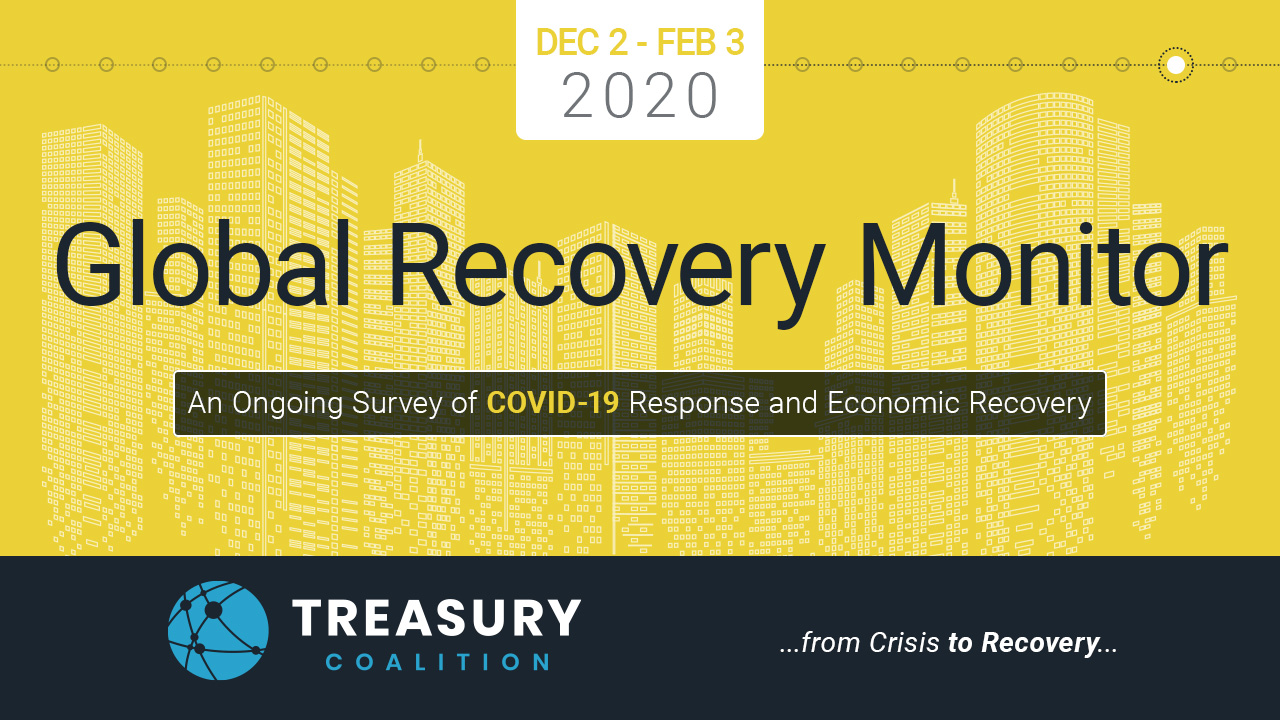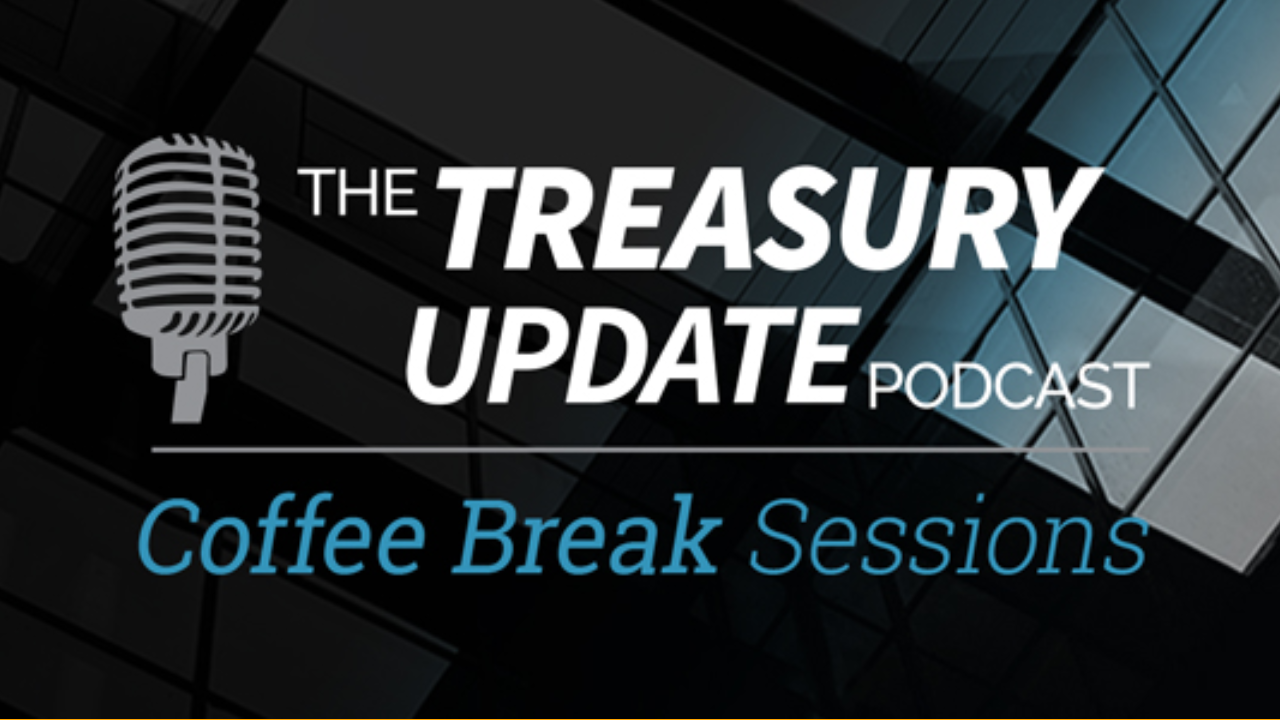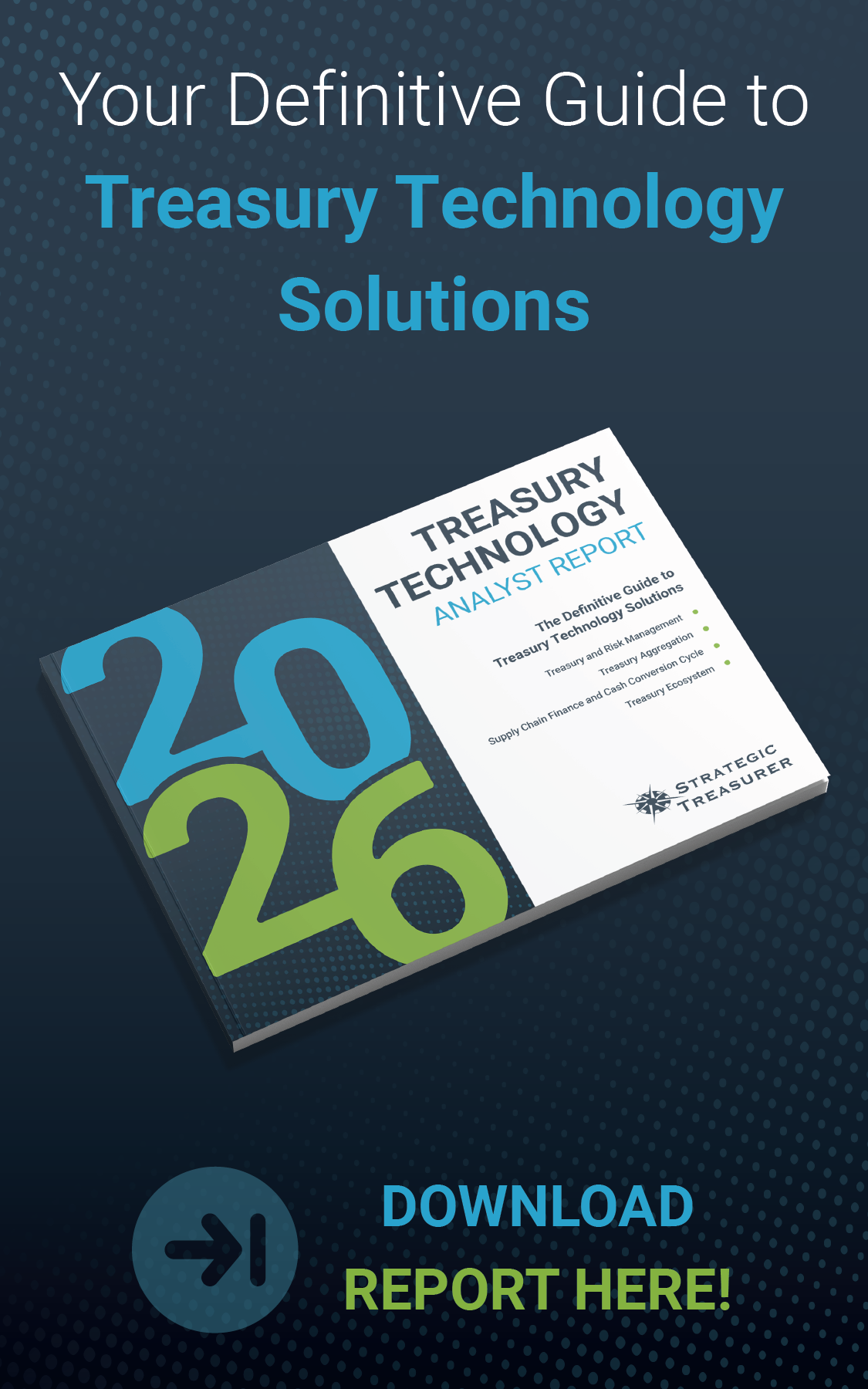
Session 28
Coffee Break Session:
What Is Benchmarking?
What is benchmarking? Coffee Break Session Host Alexa Cook catches up with Craig Jeffery, Managing Partner at Strategic Treasurer, to discuss benchmarking. They discuss what benchmarking is, who uses benchmarking and how it is applied to treasury. Listen in and learn a little bit about benchmarking.
Host:
Alexa Cook, Strategic Treasurer


Speaker:
Craig Jeffery, Strategic Treasurer


Episode Transcription - CBS Episode 28: What is Benchmarking?
ALEXA COOK:
Hey guys, welcome to the Treasury Update Podcast Coffee Break Session, the show where we cover foundational treasury topics and questions in about the same amount of time it takes you to drink your coffee.
ALEXA COOK:
This is your host Alexa Cook, joined again with Craig Jeffrey, managing partner at Strategic Treasurer. Welcome back, Craig.
Craig Jeffery:
Hey thanks, Alexa.
ALEXA COOK:
Thanks again for joining us today. So today we’re going to jump in and cover what is benchmarking? Craig, do you want to give us just maybe a quick high level overview of what benchmarking is?
Craig Jeffery:
Yeah. Benchmarking is in the family of measurements. How do we measure what we’re doing, and benchmarking is comparing yourself, your practices, your standards, your financial performance, to others. It’s making a comparison of others of like size or complexity.
ALEXA COOK:
That makes sense. Really, who is using benchmarking?
Craig Jeffery:
Benchmarking’s coming back into vogue now. It was a very popular 15, 20 years ago, and then sort of fell into somewhat disuse, but many areas in AP and AR use benchmarking, particularly production areas have used that more heavily. Treasury hasn’t used it as much in the last decade or so, but that’s starting to change.
Craig Jeffery:
They’re using it to compare, not necessarily all of the functional activities, but practices, security, controls, use of tech, some different areas that are different from what benchmarking used to be, but it’s the same practice of applying what are others doing compared to what we’re doing? That’s also a reflection on the broader issue of measurements. What should we be doing and what’s world-class?
ALEXA COOK:
Really you kind of jumped in and started answering my next question, which is how does this apply to treasury? I know you touched on different treasuries are looking at their different practices or their security and their controls, maybe even their uses of tech. But I guess I’ll just jump back to my question. Really how does this benchmarking apply to different treasuries?
Craig Jeffery:
I think most people will find treasury is really useful on things like risk management, security, the use of tech, staffing, staff development. There’s a number of other areas as well, but when we look at those, you can see, people are saying, “We want to do as much as we need to do as much as we should do.”
Craig Jeffery:
One key measurement is what are others doing? What are leaders doing and how does this change over time? This helps you make sure you’re not falling off the back of the pack for those that want to make sure they’re always reaching at least a standard of good corporate conduct, but it also helps those who say, “What should we be doing?” One indicator of that is what are others doing?
Craig Jeffery:
It also allows you to reflect when you see the movement towards world-class practices and leading practices around areas like use of different payment types, different formats, the technology infrastructure, the use of BI, the use of artificial intelligence, robotic process automation. Some of the use of these technologies, how are we gaining skills and facility with those? It’s useful because it’s a more formal way of seeing what others are doing rather than the two or three people you talked to in the last six months.
Craig Jeffery:
By capturing a much larger segment of the population, you can see the trends of what’s happening, and that’s a good place to start. It’s not the ending point, but it’s a good place to start across all these different skill domains and expectation domains.
ALEXA COOK:
That kind of leads me to a different question as this is a little bit different then I’m thinking of level setting. This is not quite level setting. This is just kind of taking a look at the market and seeing what everybody else is either charging, I’m thinking in the sense of AP or AR, or I guess what kind of technologies they’re using, and just kind of doing a quick comparison to see whether it’s the technologies, the securities, or I guess, pricing even. This kind of putting yourself in comparison to everybody else and not really level-setting it?
Craig Jeffery:
Yeah. I think there’re different terms and interpretations of how we look at it. But if you think of adoption of new practices that are better, that may be leading, that may even be world-class, they get adopted by a small sector of the companies and then it becomes adopted more heavily. Other companies are using practices, or security measures, or principles for determining their exposure, or risk elements that are falling out of vogue or are no longer adequate.
Craig Jeffery:
You can think of lots of examples from security to the use of tech across the board. This is quite, I would say, just really quite helpful as a way of saying, where are we in that mix? Where are the bulk of companies operating? What are the leading ones doing? Then that’s part of the discussion of what do we have resources to do and where should we be operating? What level? Are we going to do the minimum? Are we going to be a leader, or are we going to be world-class? We have to know what those things are. Knowing where you are compared to others is a good starting point. It’s a measurement of depth perception. I can compare it to others and see where I sit.
ALEXA COOK:
Then how frequently should treasuries or AP, AR, I guess really anybody be doing these different benchmarkings?
Craig Jeffery:
When I hear that, I think back when I remember first hearing about benchmarking years ago, and it was someone who sold benchmarking was saying every year to 18 months. I remember physically rolling my eyes about that. Some benchmarks, you might need to do annually or more frequently than annually, but bear with me for a moment. Some of them you might not need to do but every three years or so, or just when it’s an area you can focus on.
Craig Jeffery:
Something like security, I think you should benchmark every year to 18 months at the most. There’s so much changing that’s going on, it’s important. Same thing with technology. Maybe staff development is something you do every two years or every two and a half or three years, but I think you can list and say, what’s happening and figure out what your organization can take on.
Craig Jeffery:
If you’re not doing any benchmarking, why not start and see what the value is. If something’s changing slow, you don’t need to do it every year, every two years. There’s only so much you can absorb bandwidth wise in terms of making measurements, making changes. Yeah, I guess that’s a really general answer. So it’s one to three years, how about?
ALEXA COOK:
I think we’re at about time for this, so I’ll just do a quick recap, starting with what benchmarking is. Really it’s just a quick comparison of, I guess, what you’re doing in comparison to others, and then really anybody can do benchmarking. It can be AP, AR, traditionally it’s been heavier in production, but now we’re seeing it applied in treasuries. Whether that’s practices, security, controls, uses of tech, and it’s really looking at what others are doing and how we can maybe apply that.
ALEXA COOK:
I know you said that security was important and really looking at new and emergent technologies and how maybe different people are spending on these new and emerging technologies.
ALEXA COOK:
As we just said, that frequency doesn’t need to be annually, but maybe it could be as frequently as one to three years depending on kind of what’s coming out into the market and what’s applicable to your organization’s treasury. Did I miss anything there? Did you want to add?
Craig Jeffery:
Yeah, just real briefly on the one to three years. Certain areas you may want to do every year. Others, you just need to look at occasionally. It depends on what’s occurring. So security, yes. Look at it every year, 18 months. Maybe there’s other practices that don’t need to come up as regularly.
Craig Jeffery:
The other thing I didn’t mention when we talked about measurements is you can measure yourself against others and it needs to be those that are similar in terms of the complexity. Complexity can come in different areas, size of organization, number of countries you operate in, the different elements of risk. So those are key. You don’t want to necessarily make any type of comparison across the board. And so having it honed into your type of organizations, complexity is probably the most important part of that. The other measurement, of course, that’s not really part of the topic of this is how do you compare with yourself over time? How are you making improvements to your organization? Thanks so much.
ALEXA COOK:
Yeah. Thanks for joining me today, Craig. And again, to all of our listeners, make sure you tune in every first and third Thursday of the month. And if you want to reach out or have questions or comments, you can reach us at podcast@strategictreasurer.com. Thanks again, Craig. And thanks to all our listeners.
Outro:
This podcast is provided for informational purposes only and statements made by Strategic Treasurer, LLC on this podcast are not intended as legal, business, consulting, or tax advice. For more information visit and bookmark strategictreasurer.com.
Global Recovery Monitor
Join Strategic Treasurer and the Treasury Coalition as we track the impact of COVID-19 and the subsequential events on the treasury industry. Complete the 5-minute survey and receive the results report before it is publicly released!
Coffee Break Sessions – A Treasury Update Podcast Series
A part of the Treasury Update Podcast, Coffee Break Sessions are 6-12 minute bite-size episodes covering foundational topics and core treasury issues in about the same amount of time it takes you to drink your coffee. The show episodes are released every first and third Thursday of the month with Special Host and Treasury Consultant Alexa Cook of Strategic Treasurer.




